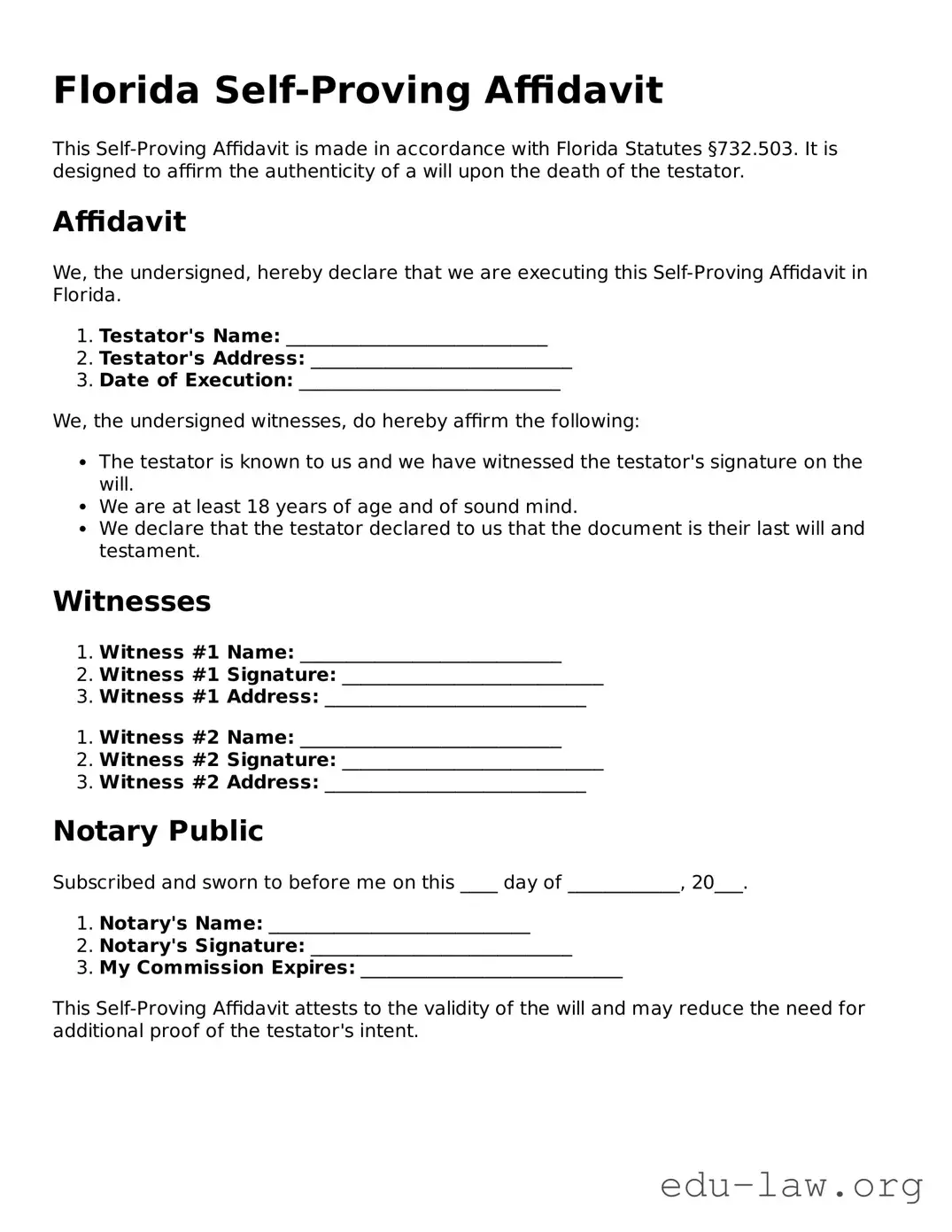What is a Florida Self-Proving Affidavit?
A Florida Self-Proving Affidavit is a legal document that accompanies a will. This affidavit allows the will to be validated in a court without the need for the witnesses to appear, provided that certain conditions are met. It simplifies the probate process, ensuring that the decedent’s wishes are honored expeditiously.
Why should I use a Self-Proving Affidavit?
Using a Self-Proving Affidavit can streamline the probate process significantly. By including this affidavit with your will, you eliminate the necessity for witnesses to testify about its authenticity. This can save time during probate and provides peace of mind for the testator, knowing that the will can be accepted more easily by the court.
Who can complete a Self-Proving Affidavit?
The affidavit must be signed by the testator and at least two witnesses. All parties involved should be present when the affidavit is signed to ensure the proper execution of the document. It is advisable for witnesses to be individuals who are not beneficiaries of the will, as this can help avoid potential conflicts of interest.
How is a Self-Proving Affidavit executed?
The Self-Proving Affidavit is typically executed at the same time the will is signed. The testator, along with the two witnesses, will sign the will and then complete the affidavit, affirming that they witnessed the signing of the will and that the testator was of sound mind at that time. The signing of this affidavit should ideally be done in front of a notary public.
Can a Self-Proving Affidavit be used for an existing will?
Yes, a Self-Proving Affidavit can be added to an existing will. If the will was not originally created with an affidavit, the testator can execute a separate affidavit to accompany the existing will. It is important that the affidavit is properly executed, following the same formalities as the initial signing.
Where should I keep the Self-Proving Affidavit?
The Self-Proving Affidavit should be stored with the original will in a safe and secure location. It is crucial that your loved ones are aware of where to find both documents. Some individuals choose to keep these important papers in a safety deposit box, while others may prefer a home safe.
Is a Self-Proving Affidavit required in Florida?
No, a Self-Proving Affidavit is not legally required in Florida. However, it is highly recommended as it can facilitate a smoother probate process. Without this affidavit, witnesses may have to be located and called to testify to the validity of the will, which can complicate and delay the proceedings.
What happens if I do not include a Self-Proving Affidavit?
If a Self-Proving Affidavit is not included with a will, the probate process may become lengthier. Witnesses may need to be found and may have to be deposed or appear in court. This potential delay may cause additional stress for the family during an already difficult time. Having the affidavit in place helps mitigate these challenges.
